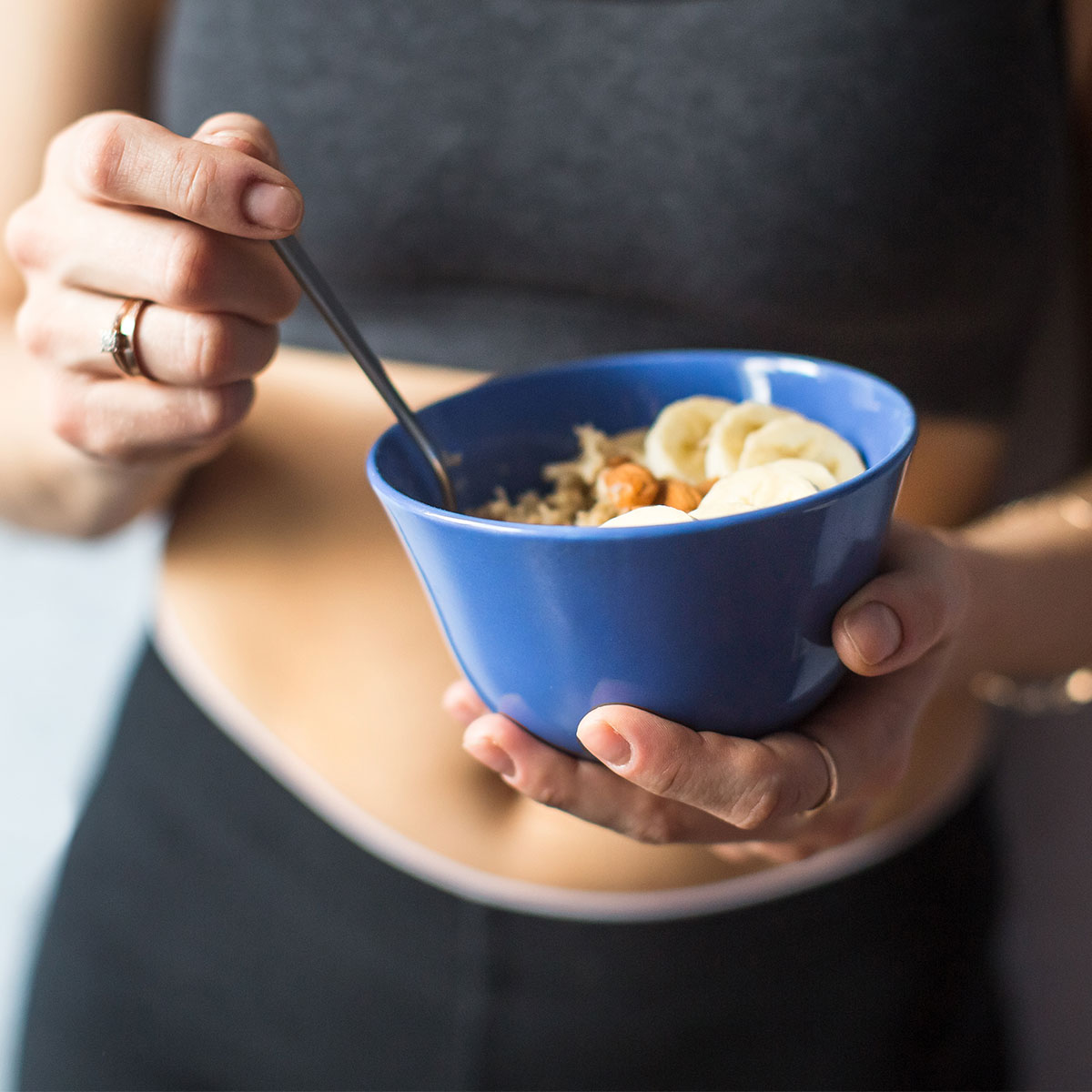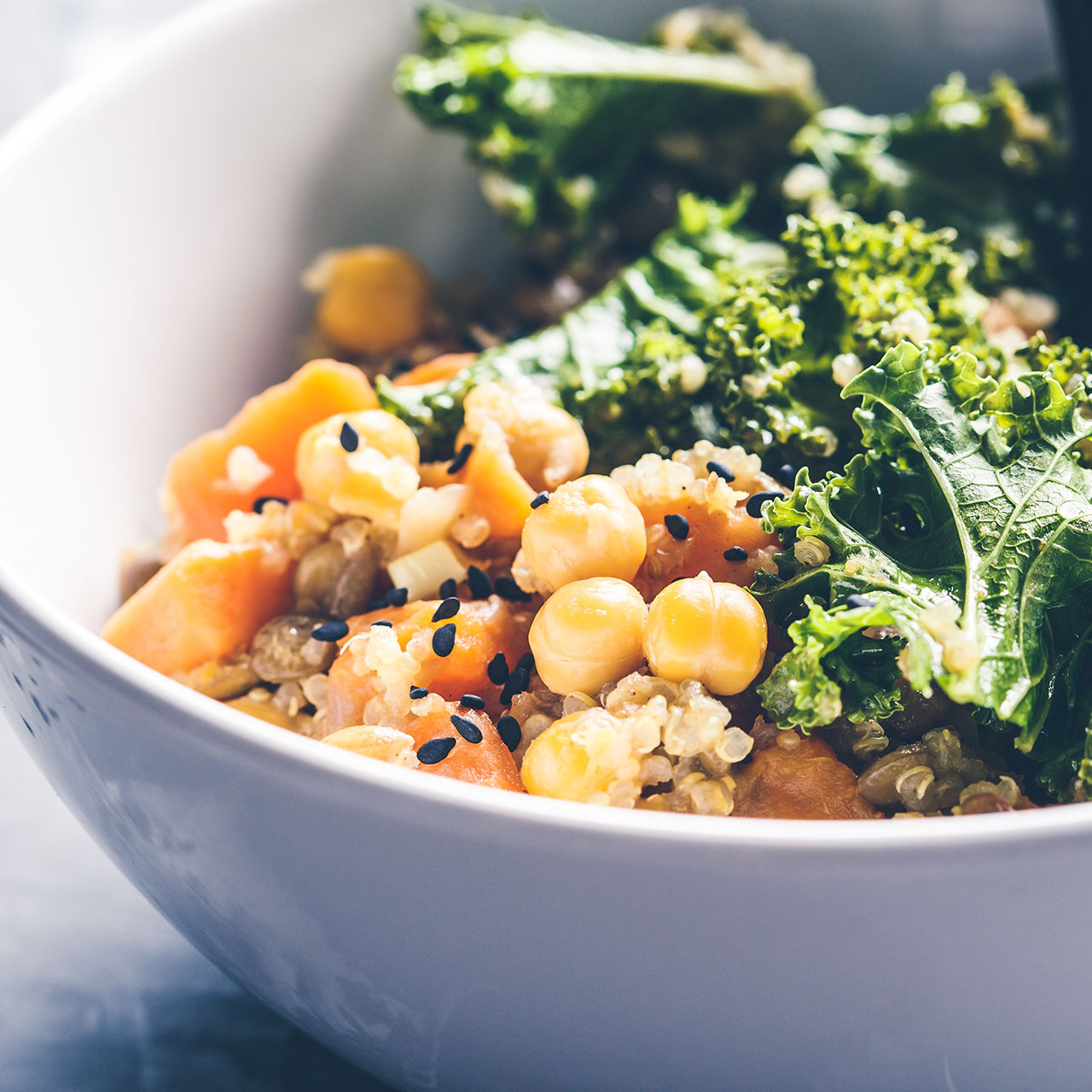Coming up with convenient, healthy breakfasts can be difficult, especially when there are so many unhealthy options out there. With conflicting information about what’s good for you and what isn’t (hello, gluten!) coming from all ends, you may be wondering if there’s any breakfast food you can rely on as you’re trying to lose weight (or just trying to keep your overall health in check). You may even be second-guessing some of the most tried and true options–for example, is oatmeal bad for you? Luckily, we’re here to step in with some expert insight and tell you that oatmeal is, in fact, a healthy, reliable breakfast, especially when compared to ultra-processed, high-carb, high-sugar options like breakfast cereal, freezer waffles, and even white bread.
To get a run-down on some of the numerous health benefits of a hearty bowl of oatmeal, we spoke to Lisa Richards, nutritionist and creator of The Candida Diet. She told us that not only can oats help you lose weight, but they’re also incredible for your heart, digestion, and tons of other areas of your health. Find 10 of the benefits below!
READ MORE: The 3-Berry Oatmeal Recipe Doctors Swear By To Shrink Your Waistline Over 50
10 Reasons Why Oatmeal Is Good For You
It’s time to put the white bread down and trade it for some tasty, fibrous oats. Here are ten great reasons oatmeal can support a healthy body.

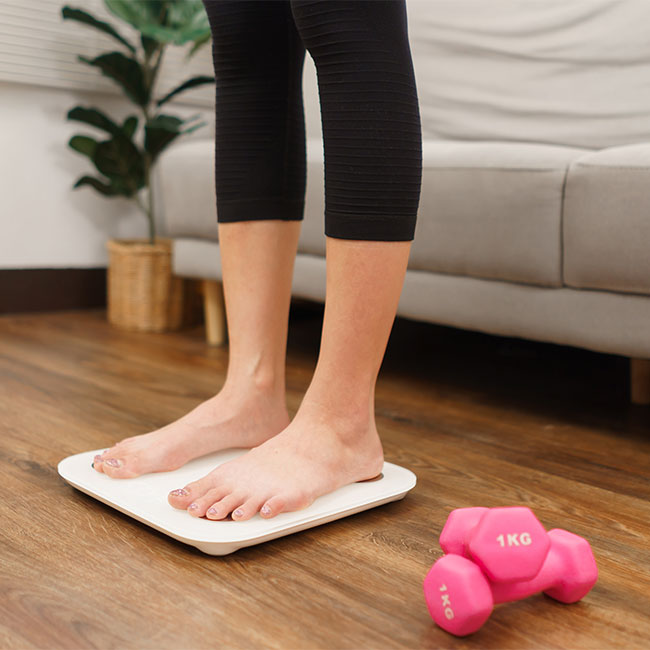
1. Low in calories/can help weight loss
If weight loss is a big selling point to you when it comes to food, then you should definitely get on board with oatmeal. We’ll get into many of the reasons oatmeal can help you slim down throughout this article, but one of the main reasons is the fact that it has a low calorie density, “meaning the ratio of volume to calories is quite low with this particular food,” Richards explains. “When you look at the amount of calories in cooked oats compared to the weight of a pound of cooked oats you are consuming a mere 300 calories for a pound of food. This means you are eating a large volume of food with few calorie consumption, which is a key component of weight loss through food.” Nice!
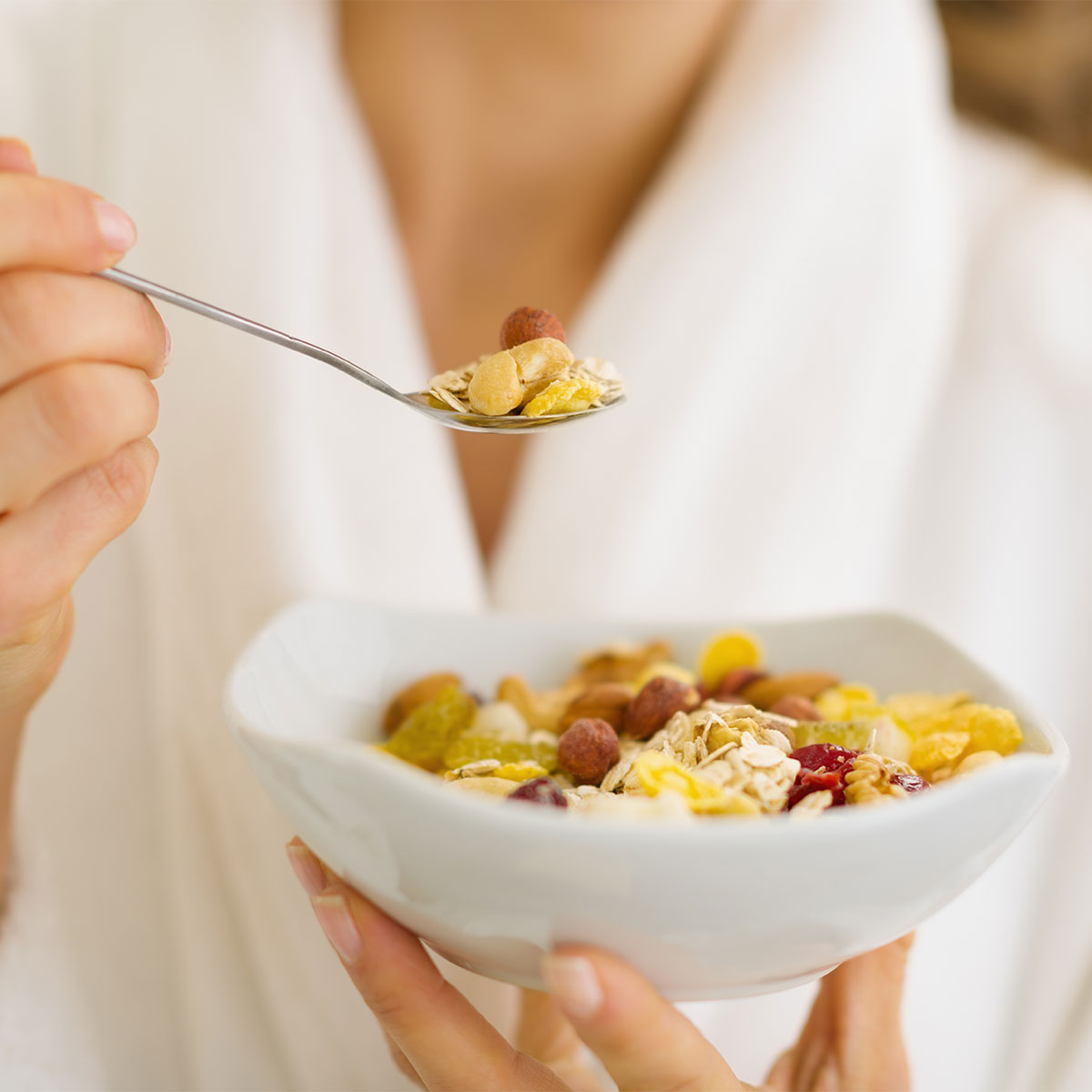
2. Helps you feel full
In addition to being low in calories, oatmeal can also pack a lot of fiber into your diet. That’s good for many reasons, but is especially helpful when it comes to weight loss thanks to the fact that fiber will keep you full throughout the day. “The fiber content in oatmeal fills you up more quickly and for longer periods of time,” Richards tells us. “This helps to prevent overeating later on as a result of a calorie dense and nutrient poor meal that is processed quickly and leaves you feeling hungry soon after eating.”
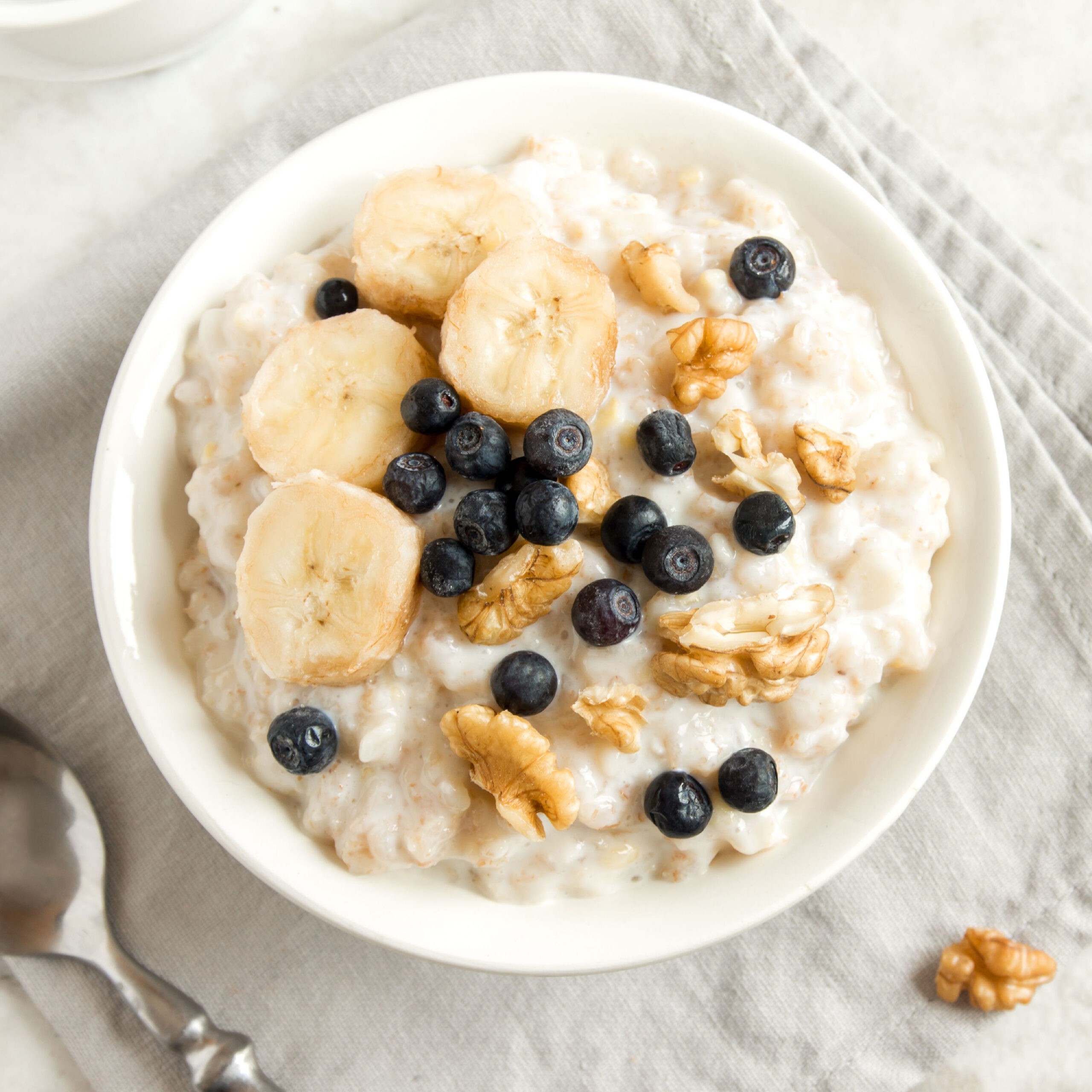
3. Rich in antioxidants
Some of the healthiest foods you can nourish your body with are those that contain high amounts of antioxidants and plant compounds called polyphenols–and luckily, whole oats do just that. In fact, they offer up a great serving of one type of antioxidant in particular, known as avenanthramides, that can help lower blood pressure. These compounds work to widen your blood vessels in order to improve blood flow. Who knew?!
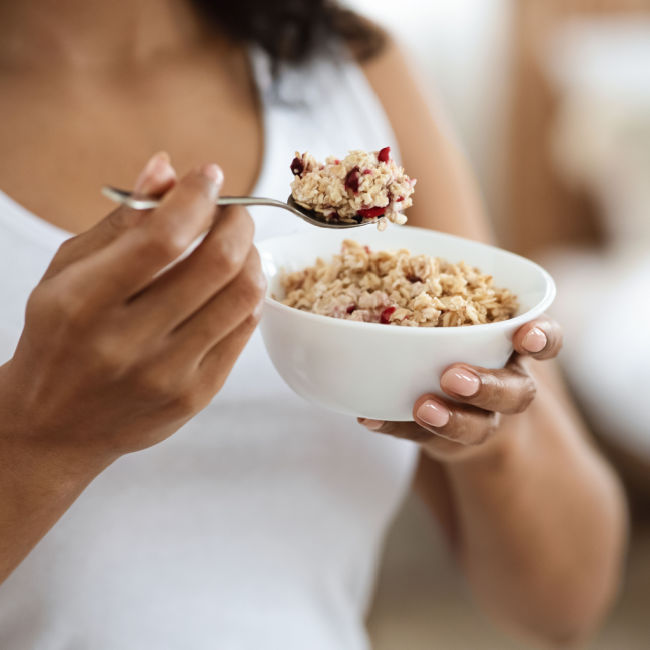
4. Lowers LDL cholesterol
There are two types of cholesterol: LDL, which we call bad cholesterol, and HDL, which is also known as the “good kind.” It probably goes without saying that you want lower LDL levels and higher HDL levels in your body. Certain foods can help raise or lower these amounts, and as it turns out, oatmeal is one of them! Thanks to its beta-glucan fiber content, it can reduce LDL levels and even protect LDL from oxidation, which can reduce the risk of heart disease.

5. Promotes heart health
Thanks to those last two points (lower LDL and more antioxidants), oatmeal is a great heart-healthy food. As we mentioned above, by lowering your cholesterol, eating oatmeal regularly can reduce your risk of heart disease, as well as heart attack and stroke. “The fiber in oatmeal works to improve heart health by reducing the blood cholesterol that circulates and risks clogging arteries,” Richards adds. Meanwhile, antioxidants have a similar effect while also reducing the risk of plaque progression and rupture in your arteries.

6. Improves digestion
If a healthier gut is what you’re after, oatmeal can absolutely help in that area, too. Once again, this has a lot to do with the food’s incredible fiber content. “Oatmeal's fiber density makes it an ideal food for healthy digestion,” Richards says. “This fiber feeds the good bacteria in the gut, which keeps the gut in balance and digestion working smoothly.” Overall, it’s a great food for improving digestion, getting things moving, and even relieving constipation. “Fiber also helps digestion by increasing the bulk of stool and stimulating the digestion process, known as peristalsis, to get the food moving through the intestines and the rest of the digestive tract. Oatmeal can also help alleviate digestion as the fiber absorbs water which keeps stool softer and easier to pass,” she says.
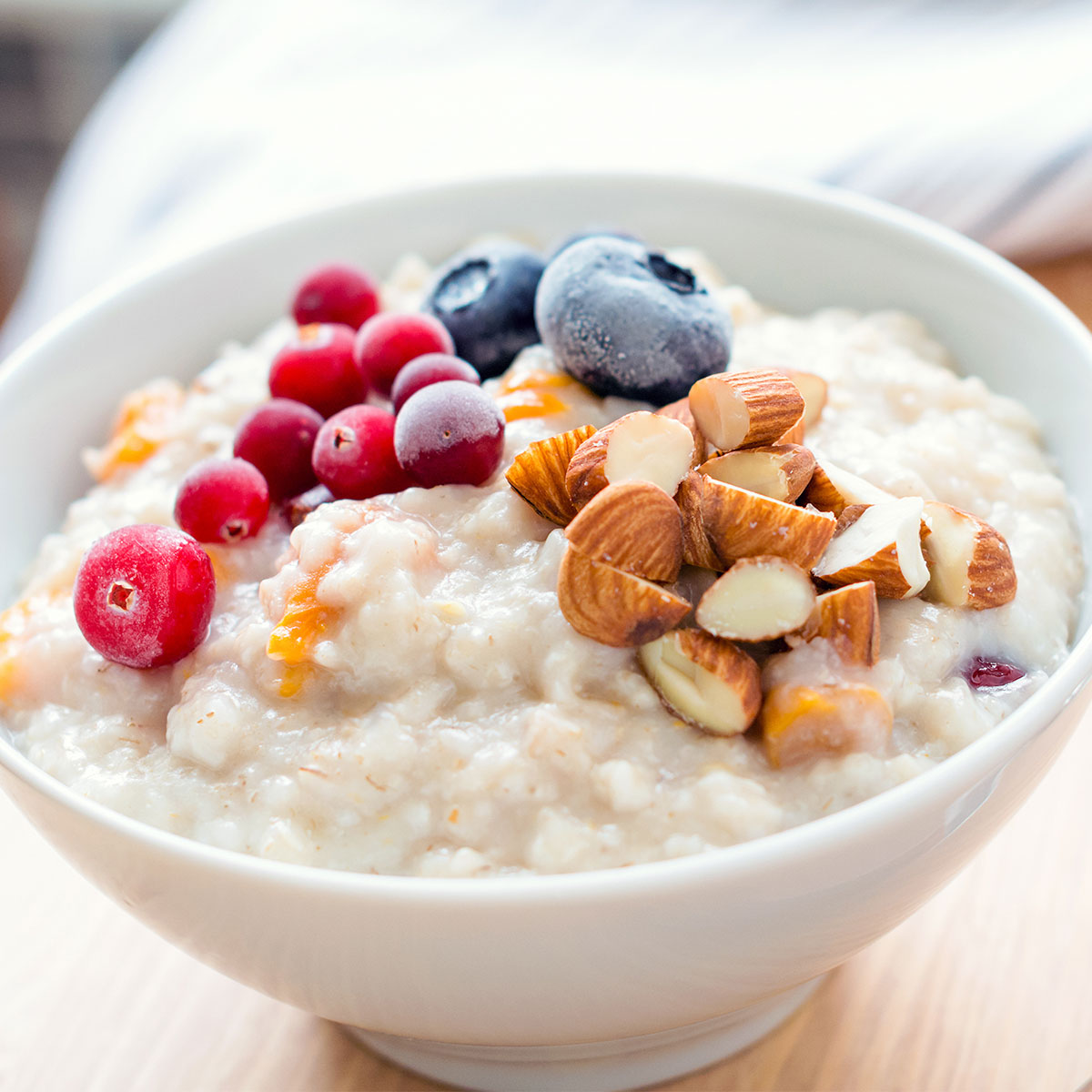
7. Helps blood sugar
Research also suggests that oats can help lower blood sugar, which is a major key in reducing the risk of diabetes and other health issues. Just as with a few of the other benefits on this list, this is thanks to the beta-glucan in oats, which works to delay the absorption of blood sugar. Over time, this can help lower insulin sensitivity–and high insulin sensitivity is one major cause of diabetes.

8. Full of nutrients
Maintaining a healthy, balanced diet is all about providing your body with all the nutrients it needs to thrive, from carbs to fiber to protein and a whole range of vitamins and minerals. Luckily, oatmeal is an extremely nutrient-packed food. Not only does it offer healthy amounts of both carbs and fiber, but it’s also loaded with manganese, phosphorus, magnesium, copper, iron, zinc, folate, B vitamins, and more. Incredible!

9. Promote healthy skin
Believe it or not, the benefits of oatmeal aren’t just on the inside–oats can also help promote healthier, more beautiful skin, both when you eat them and when you apply them topically! “Oatmeal is unique in its ability to improve skin health through both external application and dietary consumption,” Richards says. “It is a natural exfoliate and often used to improve the appearance of skin in that way, while also being anti-inflammatory which is soothing to irritated skin.” Additionally, she notes that “oatmeal's positive impact on gut health by keeping the digestive tract running and free of toxins has benefits that reflect on the skin as well.”

10. Decrease risk of asthma
Another lesser known benefit of oatmeal is the fact that it may be able to decrease the risk of childhood asthma. This is because of its anti-inflammatory effects. Essentially, asthma is caused by inflammation in our airways, and it’s possible that feeding children oatmeal early on (one study suggests before they are 6 months old) may be able to prevent this inflammation and reduce their risk of developing asthma.
The bottom line
So, there you have it: oatmeal is not, in fact, bad for you after all! In fact, it’s one of the best healthy breakfasts you can start your day with each morning–it can benefit everything from your heart to your skin. So say goodbye to sugary breakfast cereal; this fiber-packed, nutrient-rich superfood should definitely be at the top of your grocery list this week. We’ll definitely be making it a staple in our pantries!





